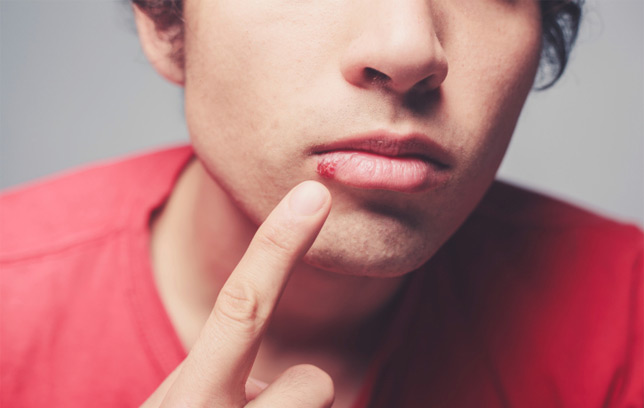Roy Seidenberg, M.D., a dermatologist at New York University, explains one of the theories behind that blister on your kisser. Other suspected triggers in this mystery: UV light and genetics.
Despite the name, a common cold virus is not the culprit. Blame the herpes simplex virus type 1. At some point in your life, you probably invited this invader in by kissing an infected person; the mucous membranes in your lips gave easy access.
2. Your cells are hacked
After the herpes virus takes its buss ride, it enters your skin cells. There its DNA replicates in the cells’ nuclei; this process enables the virus to spread to more cells. Eventually it infects your nerve endings and then travels to the base of your trigeminal nerve—the ganglion—where it hides out.
3. Antibodies attack
Your body knows that it’s been infiltrated. The infected cells alert your lymph nodes, which mobilize white blood cells called lymphocytes to give the virus a biochemical beatdown. But in this case, your lymphocytes are more like “wimpocytes”—they can only contain the virus, not destroy it.
4. Stress screws you
Anytime you’re under heavy-duty stress, your levels of the fight-or-flight hormone cortisol spike. That’s good if you need to do battle with your boss or outrun your significant other, but it weakens your whole immune system. Your depleted army of lymphocytes is left to stand guard against herpes.
5. Your lip goes boom
Noticing that it’s no longer surrounded, the virus seizes the opportunity to escape. It travels back down the nerve pathway to stage an attack on your skin cells. You feel a tingle on your lip. Soon, you’re staring at a cold sore. Your immune system needs 10 to 14 days to confine the virus to the nerve again.


















